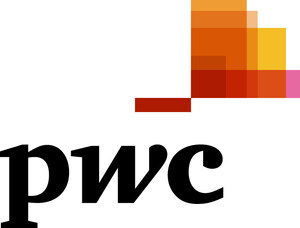Investors Giving Noncore Commercial Real Estate Plays More Consideration, According to the PwC Real Estate Investor Survey™
Surveyed Investors Accepting More Risk Due to Rising Prices for Core Offerings and a Greater Sense that the Industry Has Bottomed
Average Overall Cap Rates Decrease in 27 of the Survey's 31 Markets
NEW YORK, Dec. 20, 2010 /PRNewswire/ -- As investors see slight, yet promising, signs that the U.S. economy is likely to evade a double-dip recession and that the supply-demand dynamics of the still-frail commercial real estate industry have mostly bottomed, there is an increased willingness to look for buying opportunities beyond either super core markets and trophy assets or vastly distressed properties, according to the fourth quarter 2010 findings of the PwC Real Estate Investor Survey, formerly known as the Korpacz Real Estate Investor Survey®, released today.
(Logo: http://photos.prnewswire.com/prnh/20100917/NY66894LOGO)
The report notes that interest in secondary locations, Class-B properties, and value-added Class-A plays is heating up and that buyers are becoming more comfortable with taking on slightly more risk, suggesting that both investors and lenders are gaining more confidence in the overall performance of both the economy and the real estate industry. Although buyers are not rushing in droves to acquire noncore assets and offerings in secondary markets, riskier plays are enticing a growing number of investors as the market for trophy deals is becoming saturated with eager capital.
"This time last year investors were solely focused on 'treasures' or 'traumas', properties that were either top-notch quality or significantly discounted due to sellers in distress, and there was no appetite for assets in the middle of the spectrum," said Mitch Roschelle, partner, U.S. real estate advisory practice leader, PwC. "Now, many of them are looking to widen their investment parameters and take on additional risk as they see signs that the economy and the industry are slowly healing."
Although most Survey respondents expect investors to continue to move up the risk ladder in 2011, core assets will likely remain the primary focus of investors, keeping competition and pricing strong for the best quality assets offered for sale, says the publication.
Limited Stellar Offerings Results in Lower Cap Rates
The report reveals that the aggressive pursuit of core assets continues to compress overall capitalization (cap) rates of high-quality, well-located assets. Specifically, the average overall cap rate decreased in 27 Survey markets, increased in two of them, and held steady in two others over the past three months.
Apartment markets had the highest decrease this quarter (the national market declined 61 basis points and the Southeast region decreased 107 basis points) with the national Central Business District (CBD) office market experiencing the second biggest decrease (down 48 basis points) mainly due to aggressive bidding by enthusiastic buyers for core assets, low interest rates, and an improved lending environment. Although an increasing number of investors are expanding acquisition searches to include secondary markets and "impaired" assets, cap rate compression continues to mainly occur for better-positioned and well-located assets that exhibit stable rent rolls and limited near-term leasing risk.
Looking ahead, the Survey reveals that strong buyer interest, combined with the reopening of the debt markets, continues to be recognized in investors' expectations that overall cap rates will either hold steady or decline over the next six months. In fact, Survey respondents expect overall cap rates to hold steady in 24 of the Survey's 31 markets during that time period. And while four markets report the potential for decreases in the near term, none are expected to realize increases. Markets where the majority of participants expect overall cap rates to decline during the next six months include the national CBD office market (down as much as 50 basis points), the Charlotte office market (down as much as 110 basis points), the San Francisco office market (down as much as 100 basis points), and the Chicago office market (down as much as 50 basis points).
"The sentiment among investors has improved significantly from a year ago, demonstrating an acceptance of where the market is today and where it will likely be in the near term," stated Susan Smith, director, real estate advisory practice, PwC, and editor-in-chief of PwC's quarterly Survey. "Although some investors are now looking to take on more risk, a full movement to secondary markets and riskier plays won't occur until a healthier U.S. employment picture develops. To investors, job creation is the missing element needed to foster a full recovery, restore confidence, and, in turn, widen the tolerance for risk."
Key Findings and Survey Highlights
According to the Survey, the national apartment sector is expected to see a meaningful improvement in fundamentals in the near term due to a modest recovery, no new material supply, and encouraging demographic trends from the echo-boom generation. Many of the Survey respondents believe the apartment market is poised for positive rental rate trends over the next two years, as this quarter's initial-year market rent change rate turned positive for the first time since the third quarter of 2009.
Despite record-high vacancies and continuing declines in rental rates, acquiring warehouse assets remains a primary goal for many investors. However, deciding where to acquire these assets remains a difficult task as many warehouse markets remain oversupplied in comparison to prior years.
The national CBD office market remains challenged, demonstrating signs of a painfully slow recovery as supply remains greatly ahead of demand in many downtown cores. Yet, in the third quarter of 2010, the U.S. CBD office market posted an overall vacancy rate of 14.7 percent, ten basis points lower than the prior quarter. Many surveyed investors stated, though, that most tenants are signing for the same, if not less, space.
After numerous consecutive quarters of vacancy rate increases and givebacks of space by merchants, the prospect of a sustainable recovery for the retail sector is hard to imagine, according to the Survey, given the current unemployment rate, a recent decline in U.S. personal income, and a decline in the Consumer Confidence Index. Still, some retailers are expanding and leasing new space.
Information about subscribing to the PwC Real Estate Investor Survey can be found at www.pwc.com/us/realestatesurvey. Members of the media can obtain an electronic copy of the full report by contacting Scott Cianciulli at (212) 986-6667 or [email protected].
About the PwC Real Estate Investor Survey™
The PwC Real Estate Investor Survey, now in its 23rd year of publication, is one of the industry's longest continuously produced quarterly surveys. The current report provides overviews of 31 separate markets, including ten national markets -- regional mall, power center, strip shopping center, CBD office, suburban office, flex/R&D, warehouse, apartment, net lease, and medical office buildings. The report also includes a review of 18 major U.S. office markets including Atlanta, Boston, Charlotte, Chicago, Dallas, Denver, Houston, Los Angeles, Manhattan, Northern Virginia, Pacific Northwest, Philadelphia, Phoenix, San Diego, San Francisco, Southeast Florida, Suburban Maryland, and Washington, DC.
The fourth quarter 2010 report also features up-to-date commentaries concerning the economy, technology, , as well as information relating to valuation issues in the industry, such as tenant improvement allowances, vacancy assumptions, replacement costs, forecast periods, and growth rates.. Also in this issue is the semi-annual Domestic Self-Storage Market and information on three regional apartment markets - - the Mid-Atlantic, Pacific, and Southeast.
About PwC
PwC (www.pwc.com) provides industry-focused assurance, tax and advisory services to build public trust and enhance value for its clients and their stakeholders. More than 163,000 people in 151 countries across our network share their thinking, experience and solutions to develop fresh perspectives and practical advice.
© 2010 PwC. All rights reserved. In this document, "PwC" refers to PricewaterhouseCoopers LLP, a Delaware limited liability partnership, which is a member firm of PricewaterhouseCoopers International Limited, each member firm of which is a separate legal entity.
SOURCE PwC
WANT YOUR COMPANY'S NEWS FEATURED ON PRNEWSWIRE.COM?
Newsrooms &
Influencers
Digital Media
Outlets
Journalists
Opted In





Share this article